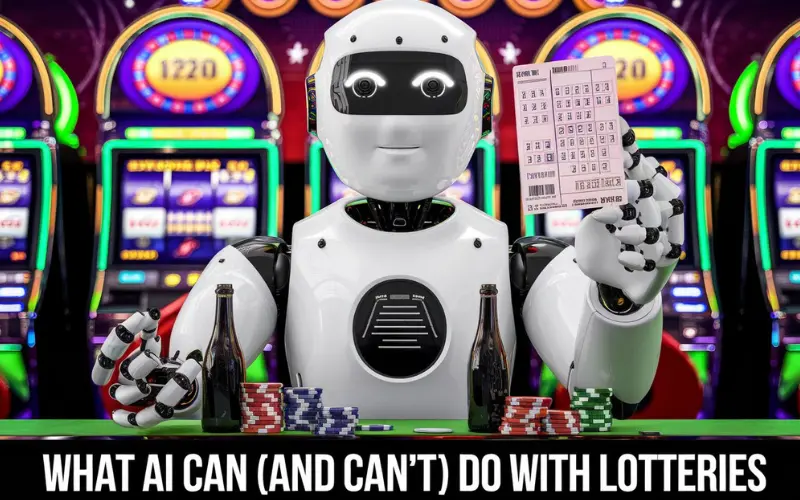
The allure of winning the lottery prediction has captivated people for decades. The idea of striking it rich overnight with a lucky ticket is a dream many hold onto. However, as technology continues to advance, particularly in the realm of artificial intelligence (AI), some people are beginning to wonder: Can AI really choose lottery predictions outcomes? This question is intriguing, but the answer is more complex than a simple yes or no. In this blog post, we’ll explore the capabilities of AI in predicting lottery numbers, delve into the mathematics behind lottery games, and consider whether AI holds the potential to outsmart these games of chance.
Understanding How Lottery Prediction Work
Before diving into AI’s role, it’s essential to understand how lottery systems are designed. Lotteries are games of chance, and their randomness is a critical feature that ensures fairness. The numbers are drawn in a random manner using complex algorithms or physical devices, such as drawing machines. These processes are meant to be unpredictable, making it virtually impossible to guess the winning combination.
For instance, a standard lottery like the Powerball involves selecting five numbers from a pool of 69, plus an additional Powerball number from a separate pool of 26. This results in astronomical odds of winning the jackpot—approximately 1 in 292 million. The sheer randomness and vast number combinations make predicting lottery outcomes seem like a fool’s errand.
But where does AI come in? Can it break the code of randomness, or is it just another futile attempt to outwit the system?
How AI Works in Predictive Analysis
Artificial Intelligence, particularly its subset of Machine Learning (ML), has made significant strides in predictive analysis across various fields. Whether it’s predicting stock market trends, forecasting weather patterns, or even anticipating consumer behavior, AI has proven to be a powerful tool. The core of AI’s predictive capabilities lies in its ability to analyze large datasets, recognize patterns, and make data-driven predictions.
In theory, AI could be applied to lottery predictions by analyzing past winning lottery prediction numbers, looking for patterns, and using statistical models to forecast future lottery prediction results. AI algorithms, such as neural networks and deep learning, excel at recognizing patterns that humans may overlook. These algorithms can analyze data at a scale and speed beyond human capability, leading some to believe that AI could find a hidden pattern in lottery draws.
However, it’s essential to understand that most lottery systems are designed with randomness in mind. Let’s explore whether AI can indeed find a loophole in this randomness.
Can AI Predict Lottery Numbers? The Reality
The short answer is: No, AI cannot accurately lottery predictions numbers. Here’s why.
- True Randomness and Complexity:
- Lotteries are designed to be random and unpredictable. The randomness ensures that each draw is independent of the previous ones, meaning there are no patterns to exploit. While some systems may use pseudo-random number generators (PRNGs), these are sophisticated enough to prevent any meaningful prediction. AI thrives on finding patterns in data, but if the data is truly random, there’s nothing for the AI to latch onto.
- Large Number of Combinations:
- The sheer number of possible combinations in lotteries is astronomical. For instance, a game like Mega Millions requires players to pick five numbers from a pool of 70 and one Mega Ball from a pool of 25, resulting in odds of 1 in 302 million. AI may identify certain statistical trends over a large dataset, but predicting the exact combination that will come up next is mathematically improbable.
- Gambler’s Fallacy:
- Many people mistakenly believe that AI can use past winning numbers to predict future outcomes, falling into the trap of the gambler’s fallacy. This fallacy is the belief that if something happens more frequently than normal during a given period, it will happen less frequently in the future (or vice versa). However, each lottery draw is independent of the last, meaning past results have no bearing on future draws.
- Lack of Sufficient Data:
- Machine Learning models require vast amounts of data to learn and lottery prediction accurately. While stock markets and weather patterns provide plenty of data points for AI to analyze, lotteries only offer one set of winning numbers per draw. The limited data makes it challenging for AI to learn any meaningful patterns, even if there were any to find.
See More: Lottery Lottery: The Best Sites to Play and Win
What AI Can (and Can’t) Do with Lotteries

Although AI cannot predict the exact lottery prediction numbers, there are some areas where AI can be applied in the context of lotteries:
- Pattern Recognition for Betting Strategies:
- Some players use AI to analyze historical data for betting strategies, not necessarily to predict the winning numbers, but to optimize their number selection. For example, some AI models might suggest avoiding frequently chosen numbers to reduce the chances of sharing the jackpot. This strategy doesn’t improve your odds of winning, but it might increase your share if you do win.
- Scam Detection and Fraud Prevention:
- Lotteries are prone to scams and fraud attempts. AI can be used to detect fraudulent activities by analyzing ticket sales, unusual patterns, or identifying potential lottery scams. This is particularly useful for large-scale lottery operations to ensure the integrity of the game.
- Enhancing Lottery Marketing:
- AI can be leveraged to understand customer behavior, optimize marketing campaigns, and improve customer engagement. By analyzing customer data, AI can help lottery companies understand which demographics are most likely to buy tickets and tailor their marketing efforts accordingly.
- Optimizing Lottery Pool Participation:
- Some groups use AI to optimize lottery pool participation by spreading out number selections to cover more combinations. Again, this doesn’t improve the odds of any single ticket winning, but it increases the likelihood that one of the pool’s tickets will hit.
Conclusion: The Future of AI in Lottery Predictions
So, can AI lottery predictions outcomes? The answer, based on current technology and the inherent randomness of lottery draws, is no. Lotteries are designed to be unpredictable, and AI, no matter how advanced, cannot break the fundamental laws of probability and randomness.
If you’re intrigued by the intersection of AI and probability, there are plenty of other applications where AI can make a meaningful impact. Whether it’s in healthcare, finance, or even entertainment, AI continues to push the boundaries of what’s possible. Just don’t expect it to pick your winning lottery numbers anytime soon!
Take your chances to the next level. This simple trick could be your golden lottery prediction!
